Fighting Fantasy
We’ve started our new topic learning this week which is driven by our class novel: Fighting Fantasy – The Warlock of Firetop Mountain.
(Ask your children why I can use a colon in this sentence.)
Today, we made the very important decision of which character we were going to be along our adventure. We read about the characters and then picked out key features that would make us want to pick them.

Having taken in all of the information given to us and each characters’ (Ask you child why the apostrophe is after the ‘s’) scores for stamina, skill and luck, we shared our opinions before putting it to the vote.
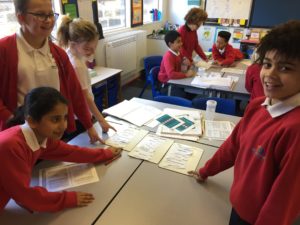
Ophelia Lapwing will be our alter ego for the next eight weeks – wish us luck.
Introducing our new topic…
This afternoon, the children were challenged with a group jigsaw puzzle activity which gave them a clue about what our new topic is going to be. While completing their individual jigsaw was the aim, they also needed to help the rest of their group complete their puzzle without talking! Taking turns and working cooperatively were key skills needed.
‘I felt it went well as our table helped each other to complete their jigsaws.’
‘We swapped pieces that we knew would help others to finish their puzzle.’





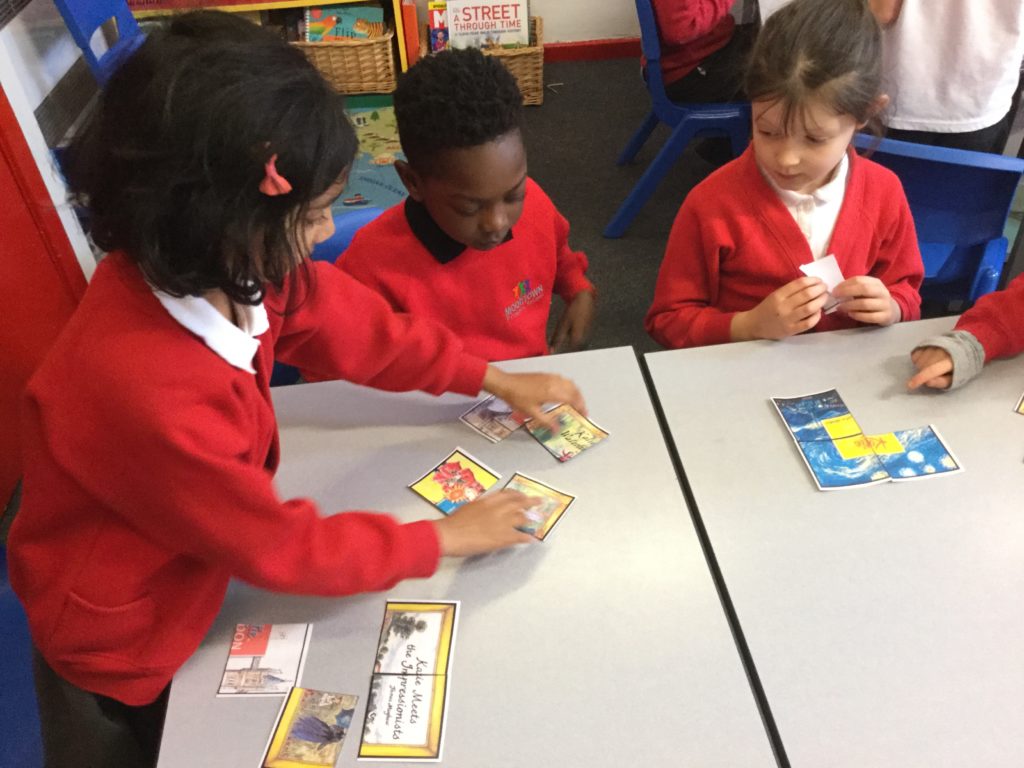
Finally, the clues were revealed and we found out our new topic is based on the Katie and … series of books by James Mayhew. We can’t wait to get started on this art themed topic.

What is a drug?
In Living and Learning, as taken from our long term plan, we will be focusing on drug education for the next two weeks.
Our first statement for this learning is, I know what a drug is.
 Our definition of a drug refers to a substance people take to change the way they feel, think or behave. The word ‘drug’ includes:
Our definition of a drug refers to a substance people take to change the way they feel, think or behave. The word ‘drug’ includes:
- All legal drugs, including tobacco, alcohol, solvents and volatile substances, misused medicines and legal highs
- All illegal drugs
- Prescribed and over-the-counter medicines
On Thursday and Friday of this week, we welcome d:side, a health education provider, to school to deliver drug education workshops to each class as part of this learning.
Parents and carers are invited to come to an information session, led by d:side, on Thursday 24 January from 2:45-3:15pm. Please inform the office if you would like to attend.
PE kit in school
On Tuesday morning, we will be visiting Allerton Grange for a PE lesson led by their sports leaders.
The children will be walking to Allerton Grange so please ensure they have tracksuit bottoms or leggings, PE t-shirt and some trainers or pumps in their PE kit to wear.
Gymnastics
This half term, our focus in PE is gymnastics. So far, the children have enjoyed learning a variety of gymnastics shapes including; star, pike, dish, arch, tuck and straddle. The children have also learnt how to travel and perform basic movement skills in gymnastics. They have combined movement skills and shapes to create a sequence. We will be moving on to learn jumps and rolls and adding them to a sequence.
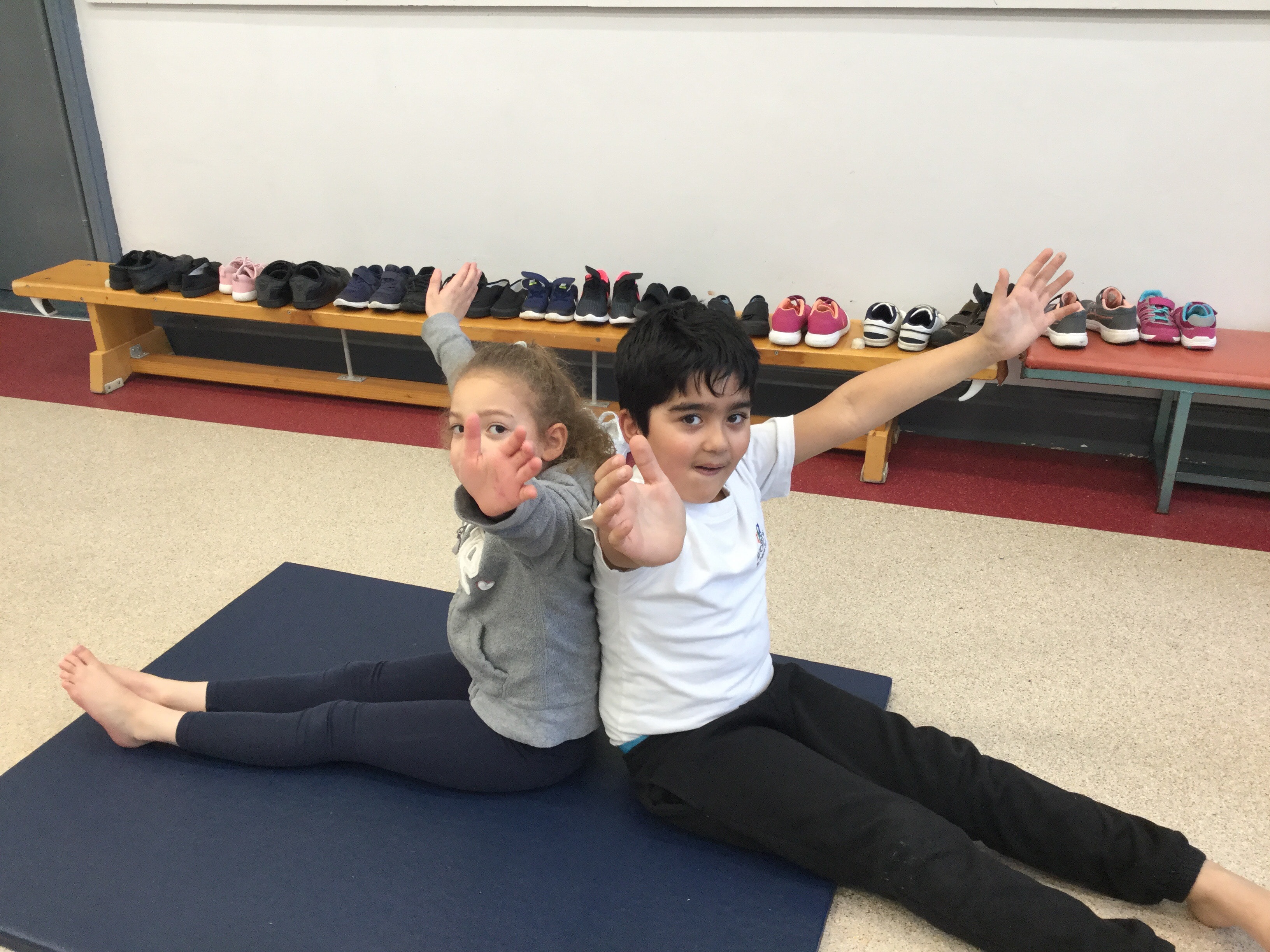
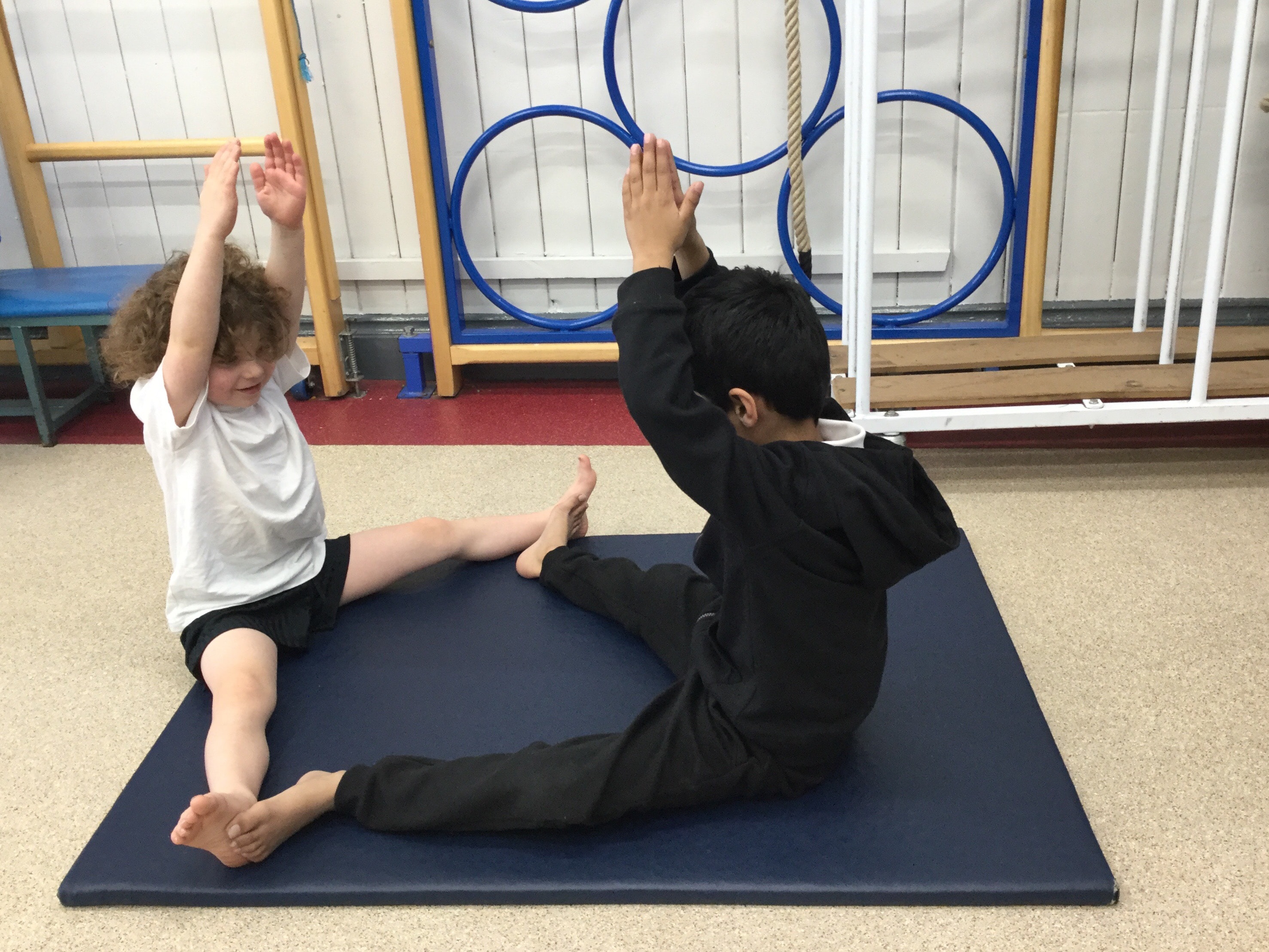
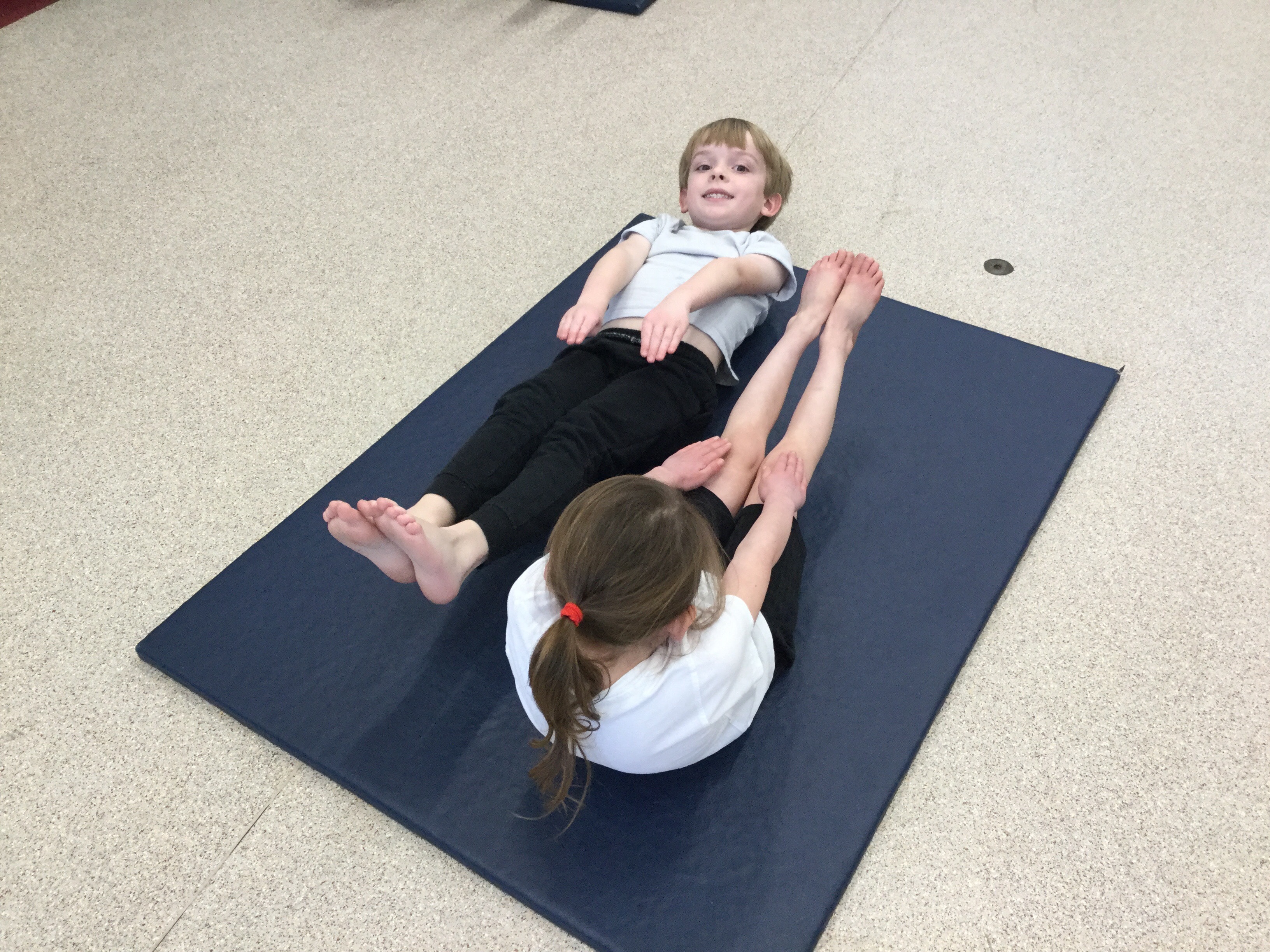
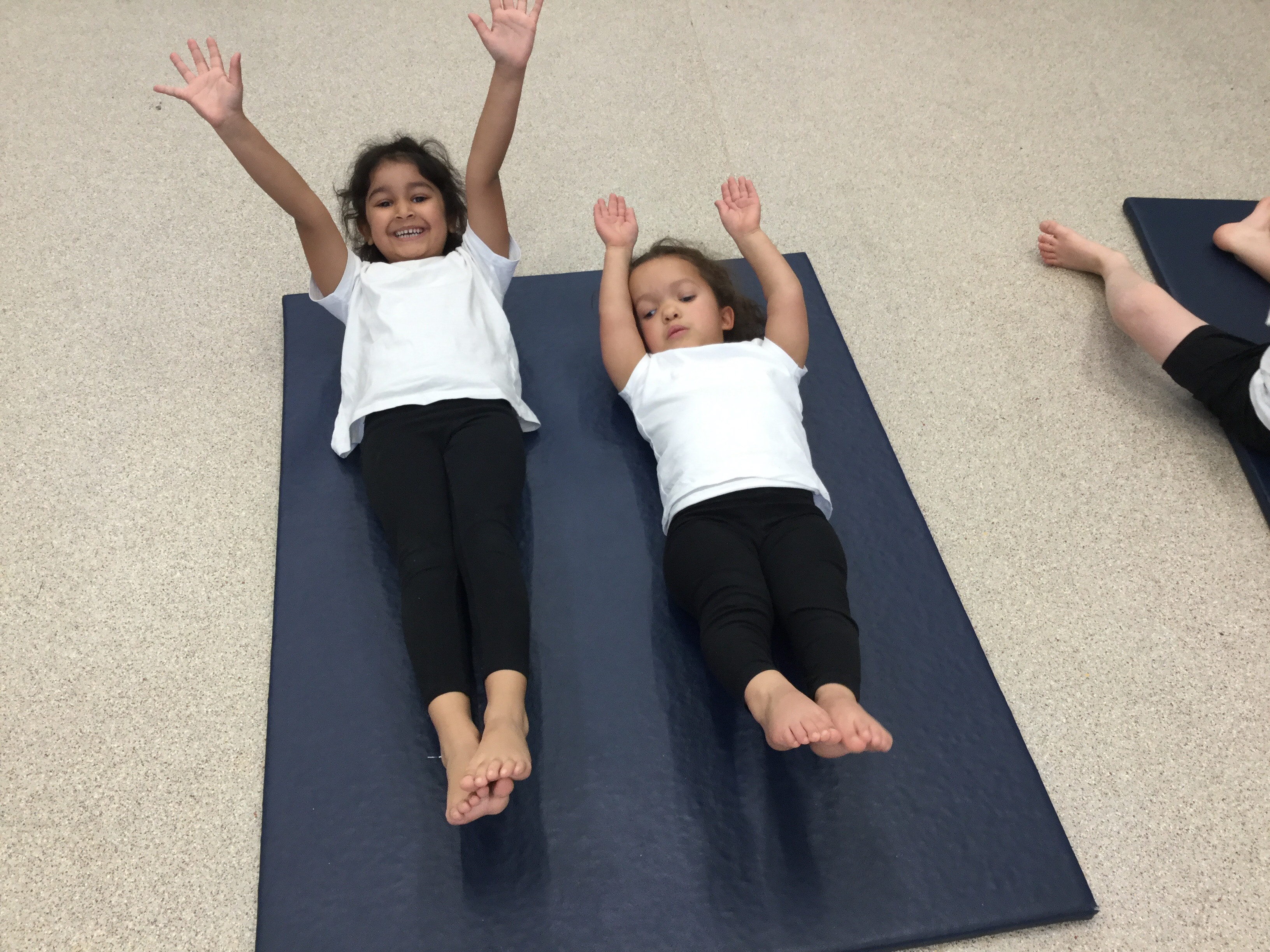
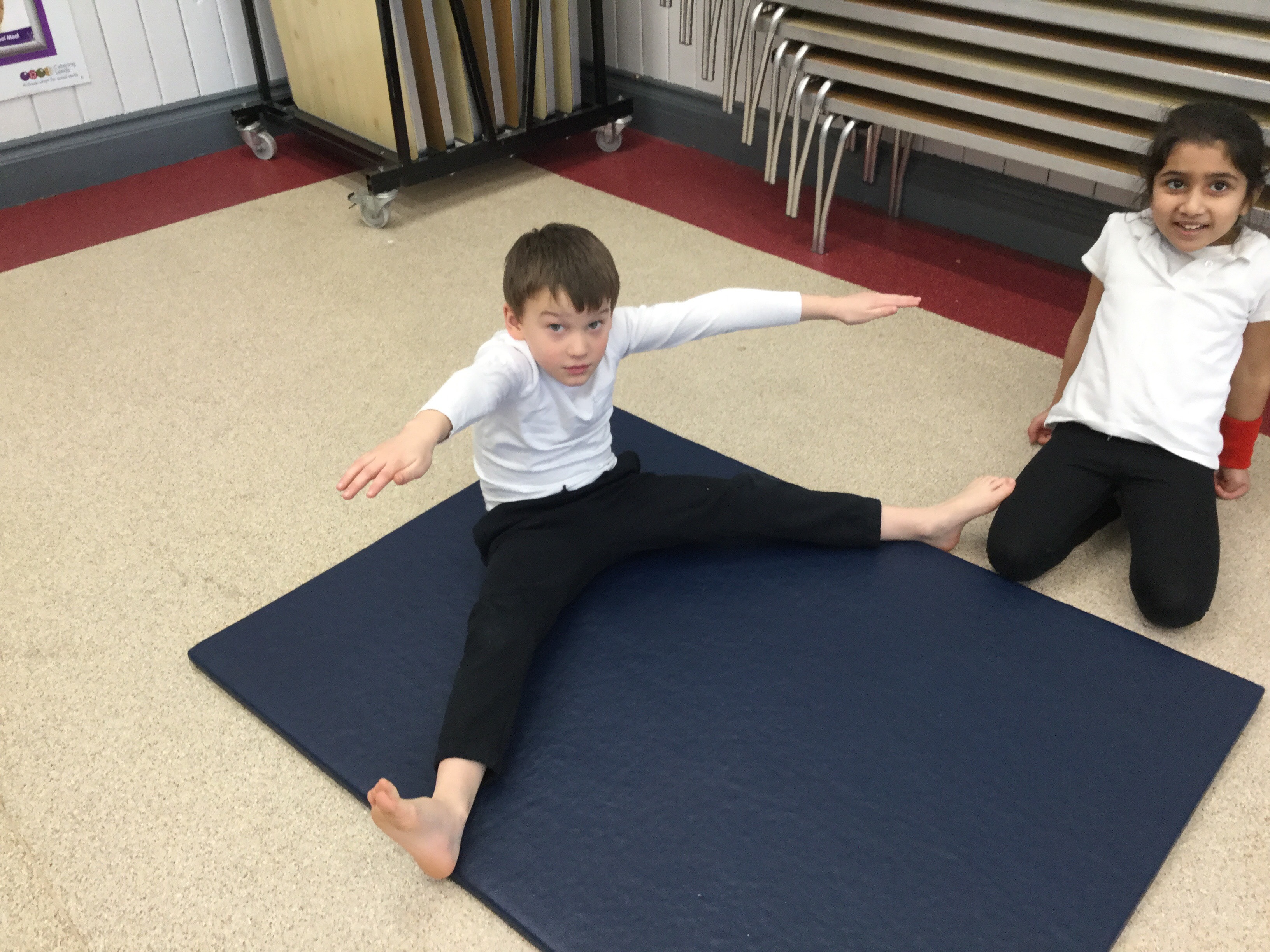
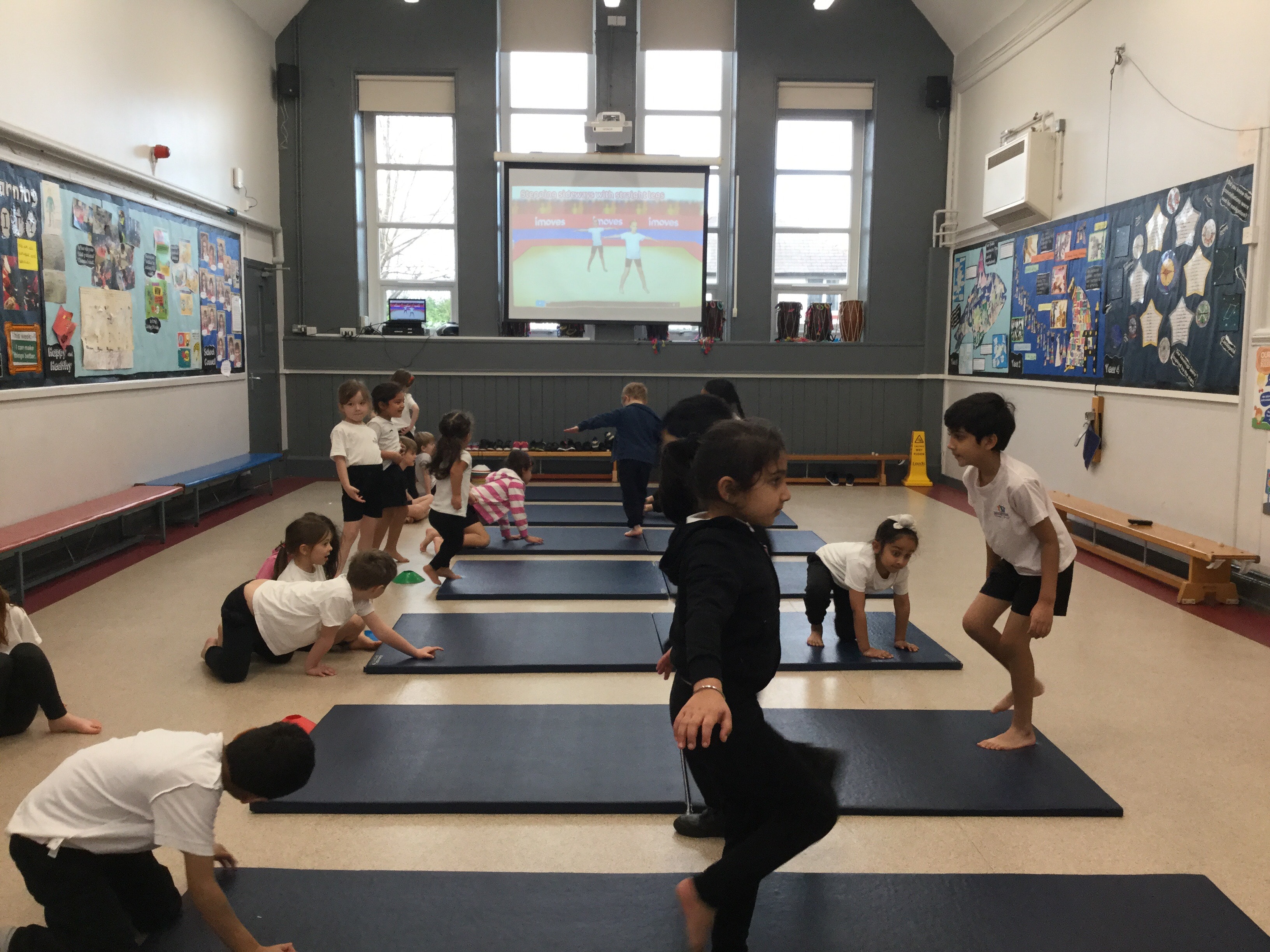
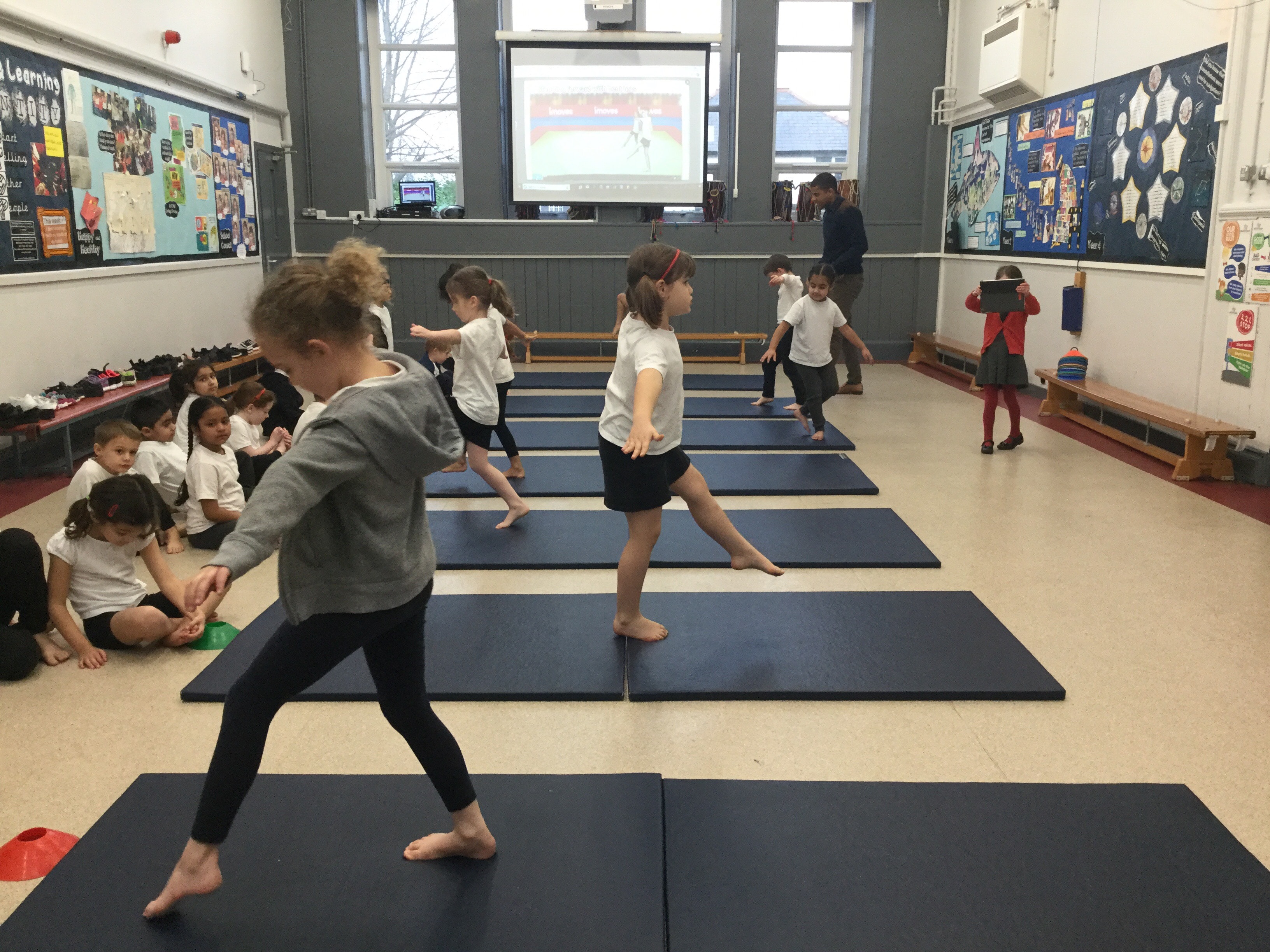
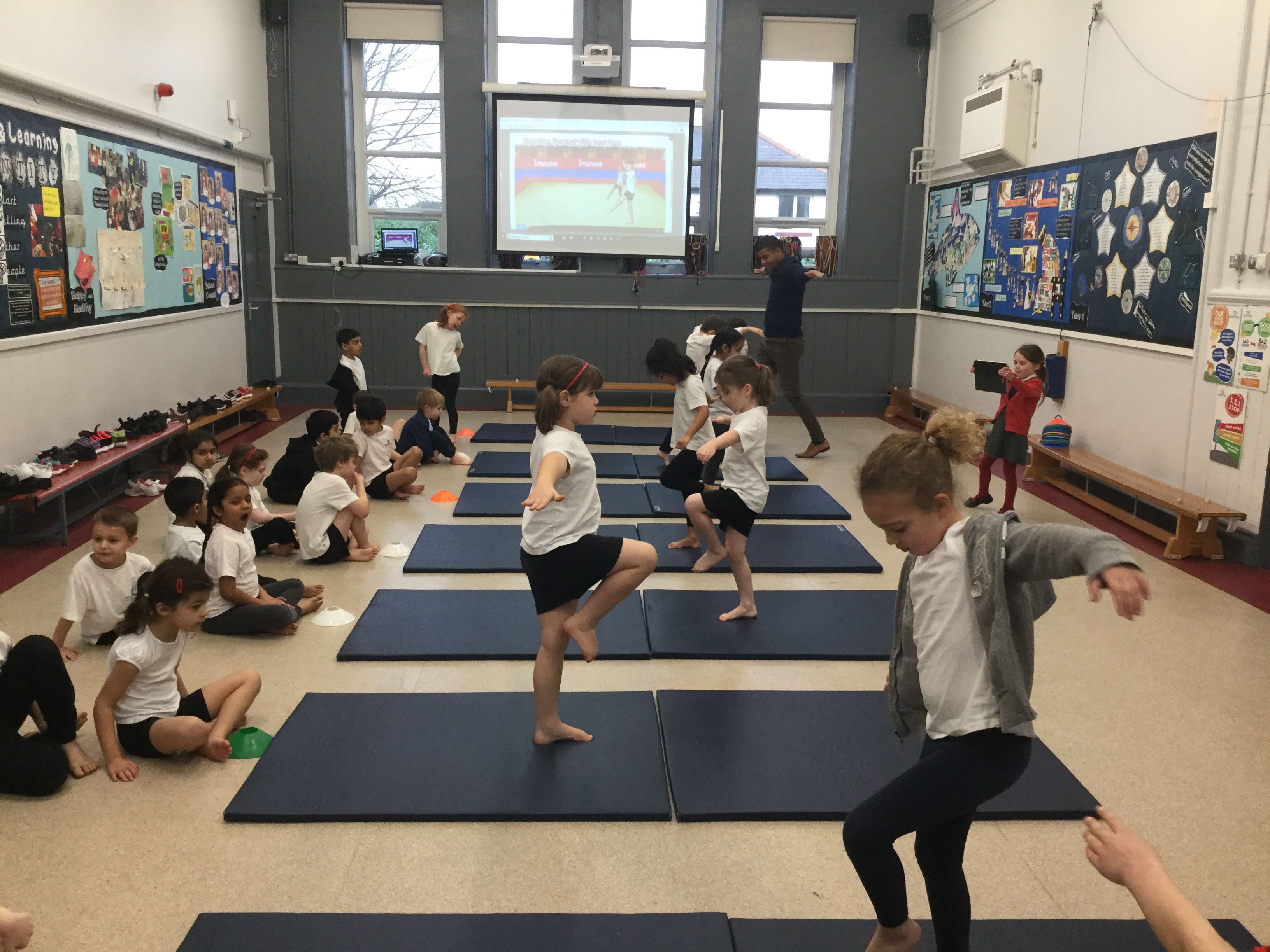
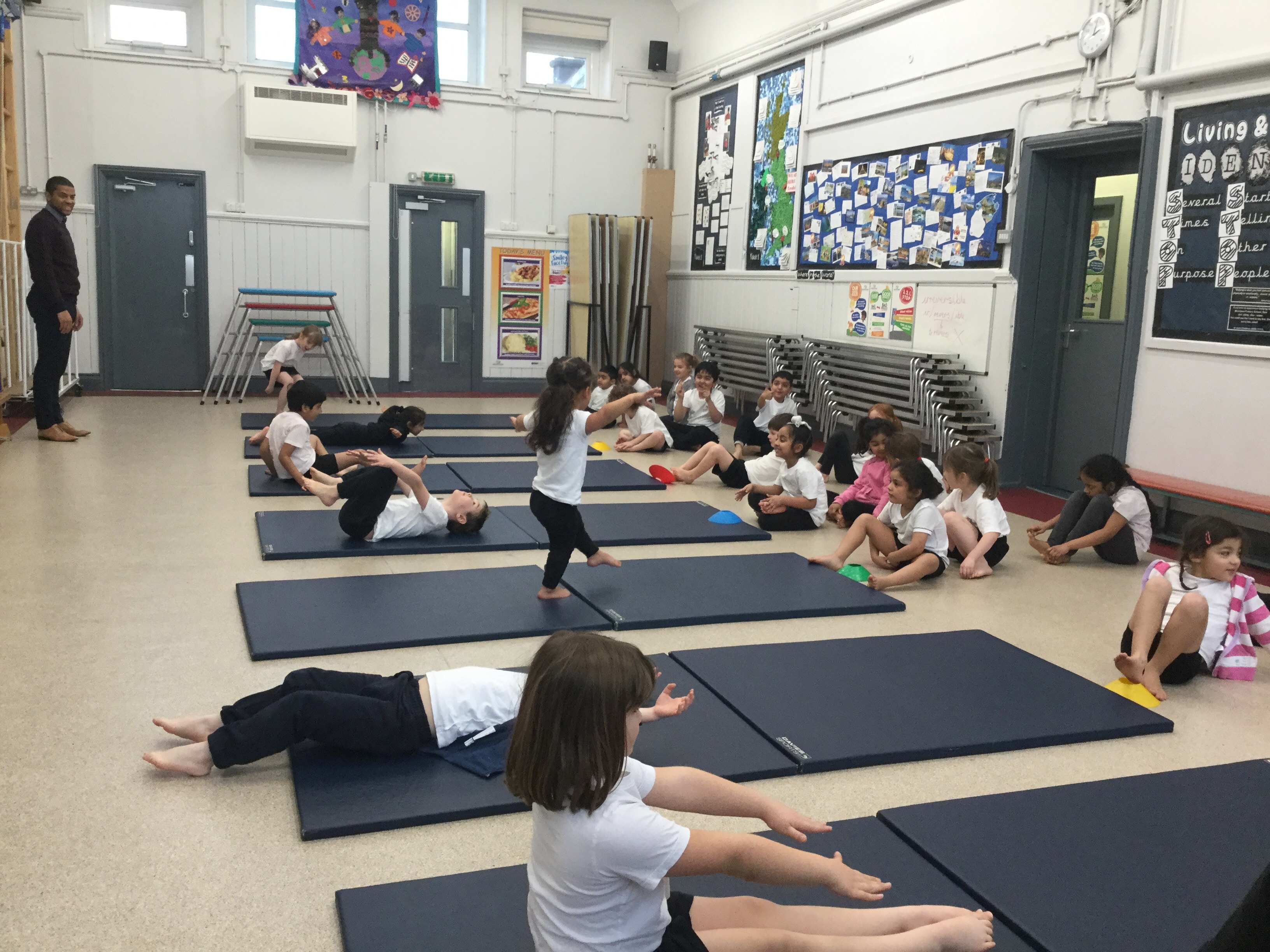
Living and Learning: What’s the matter?
As well as a science focus for the What’s the matter? topic, we’ve also been thinking about What’s the matter? from an emotional point of view.
Hopefully you got chance to find out more about this in our recent class assembly.
A focus for our writing, as we start this new term, is using conjunctions. We’ve used different pictures as a stimulus to ask What’s the matter? and in our responses we’ve been using a variety of conjunctions.

Ask your child if they can spot the conjunction that has not been highlighted.
Science in real life
As part of our What’s the matter? mini science topic, we had a real life problem to help with when we received a letter from Mr Vango.
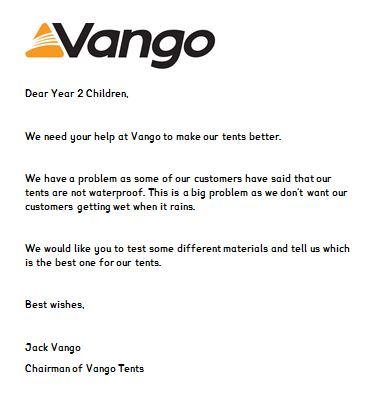
Our first scientific enquiry skill we used was questioning. We needed to work out what was the question we needed to answer. We also considered some other questions that we might need to investigate.

Thinking about the equipment needed and the safety aspects were an important part of the method.
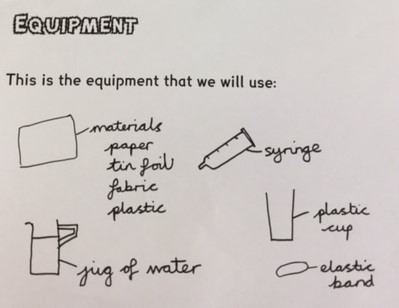
After making our predictions, we tested four different materials. Ask your child how we made the test fair and what we observed during the testing.

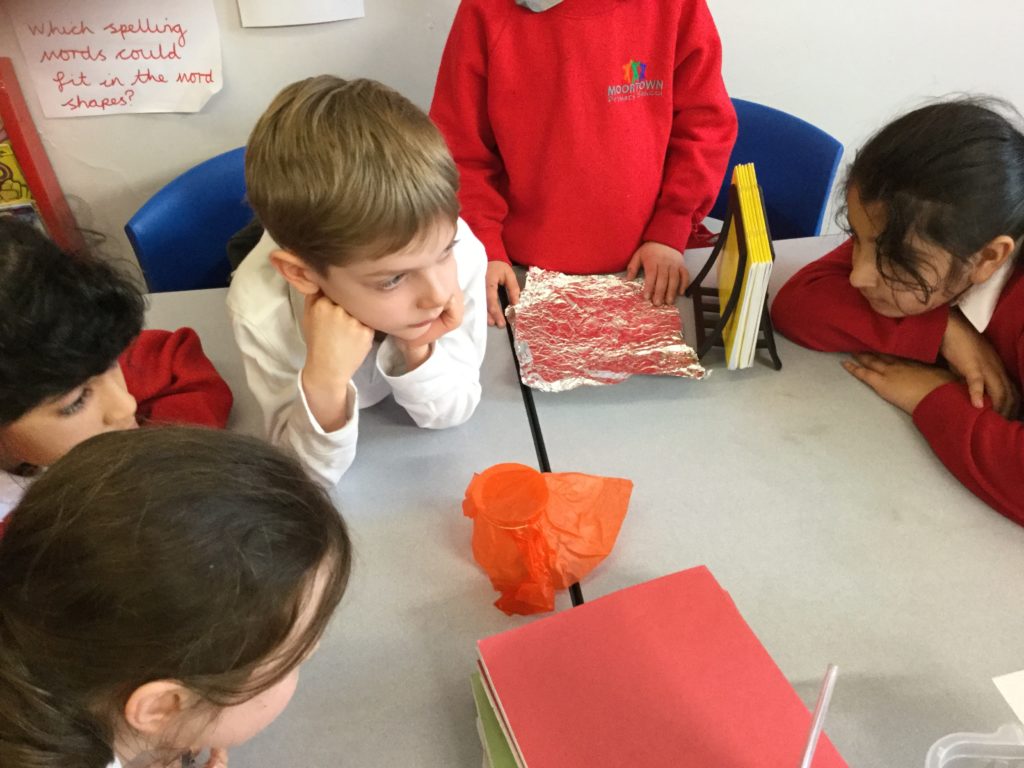
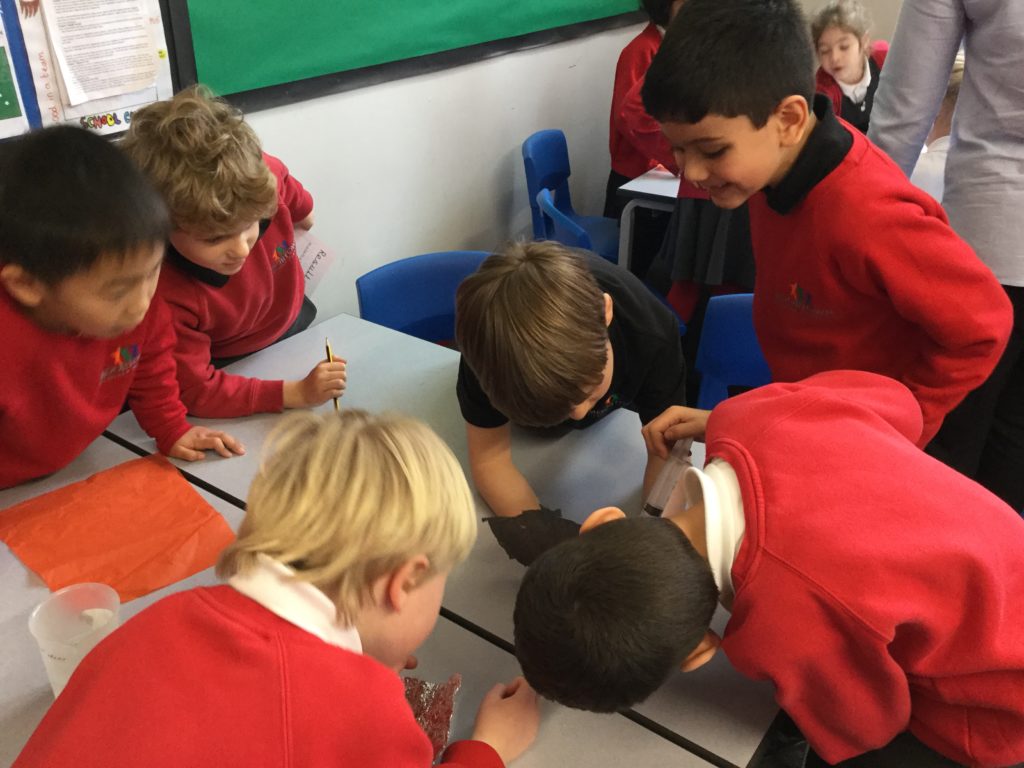
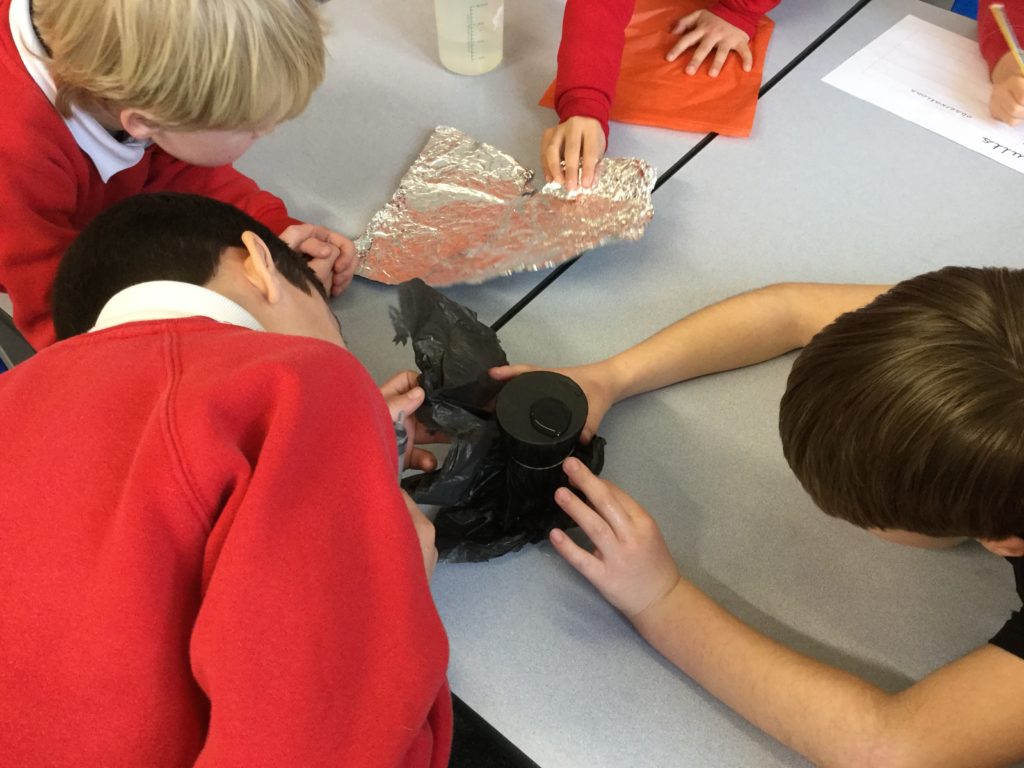




In our english lessons, we have written back to Mr Vango with our conclusions and recommendations. Ask your child which material we suggested he should use for his tents.
What’s the matter? creative homework
On Thursday, during our homework review, we enjoyed sharing and celebrating the range of homework the class had produced based around designing a house using a range of materials.
Here are some of our favourites. Presentation was important for this homework as we needed to see the materials labelled clearly. We liked these examples as they told us the materials used and we also saw some description of these materials. For example, a blue wooden door.
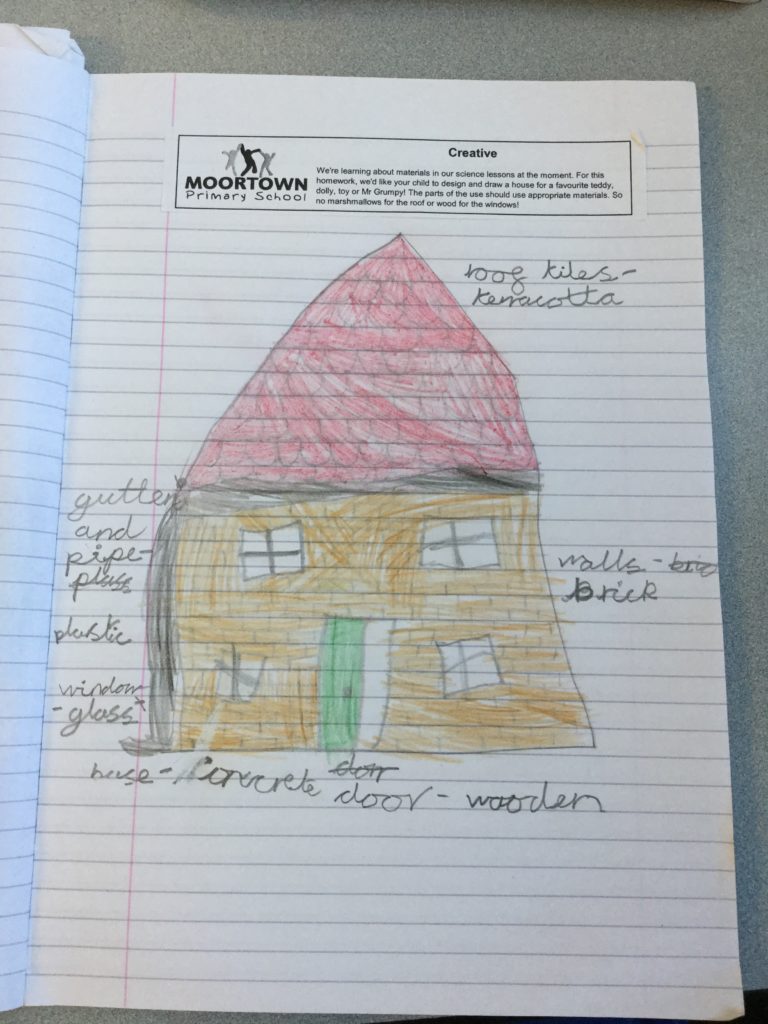
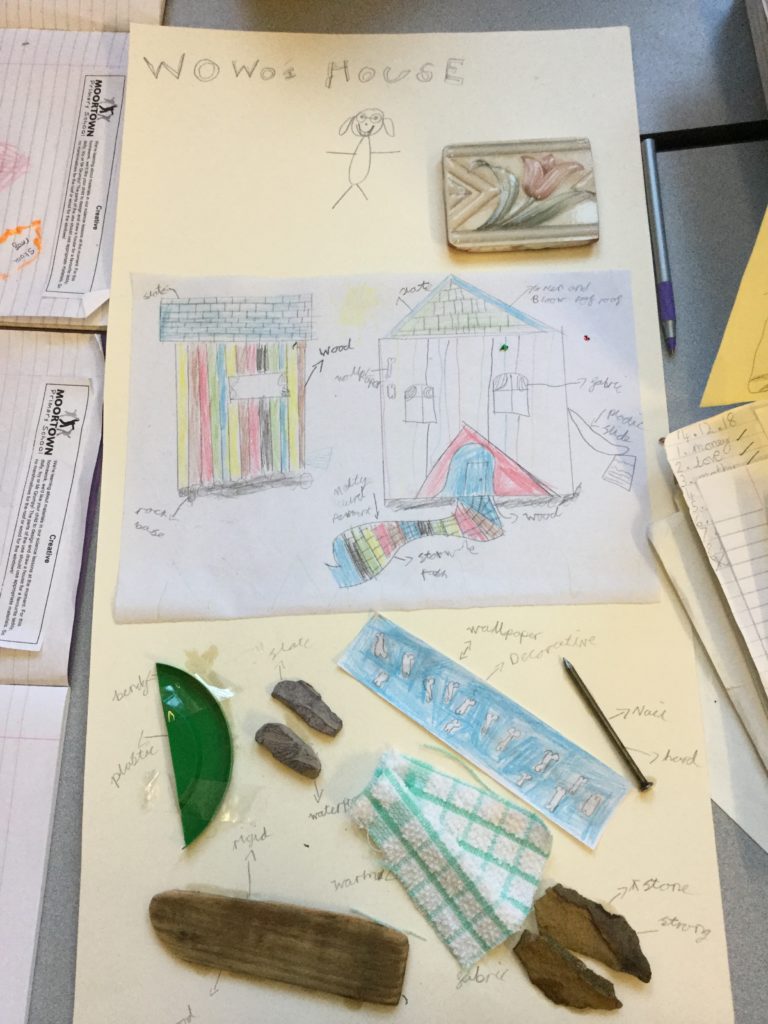


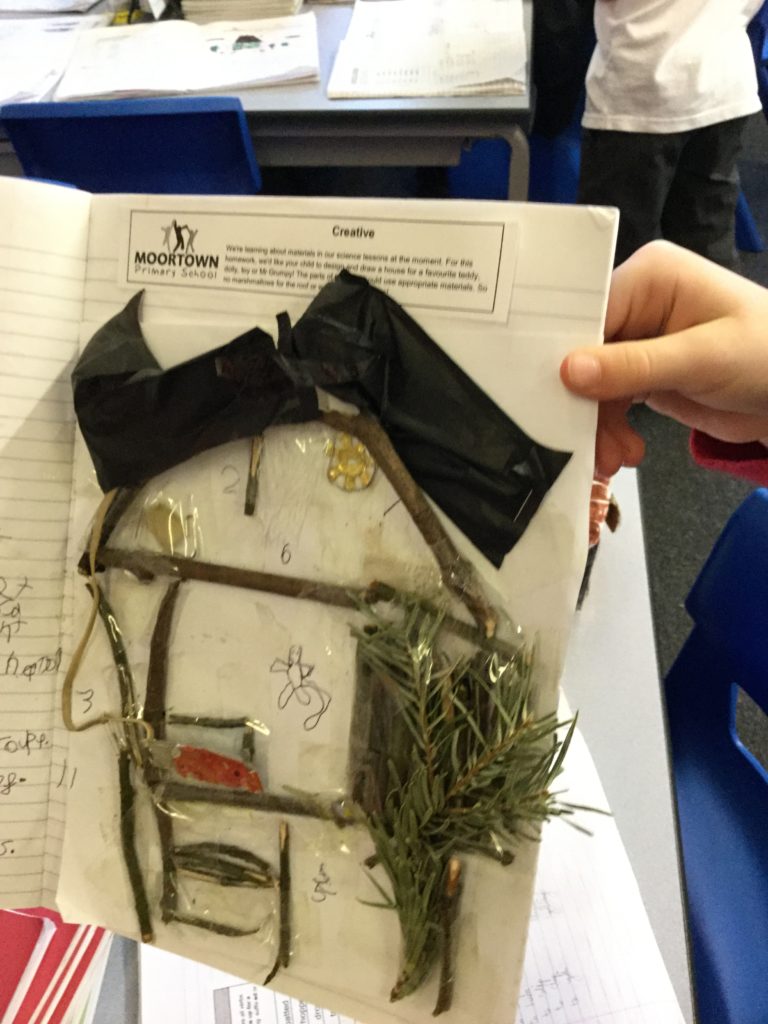
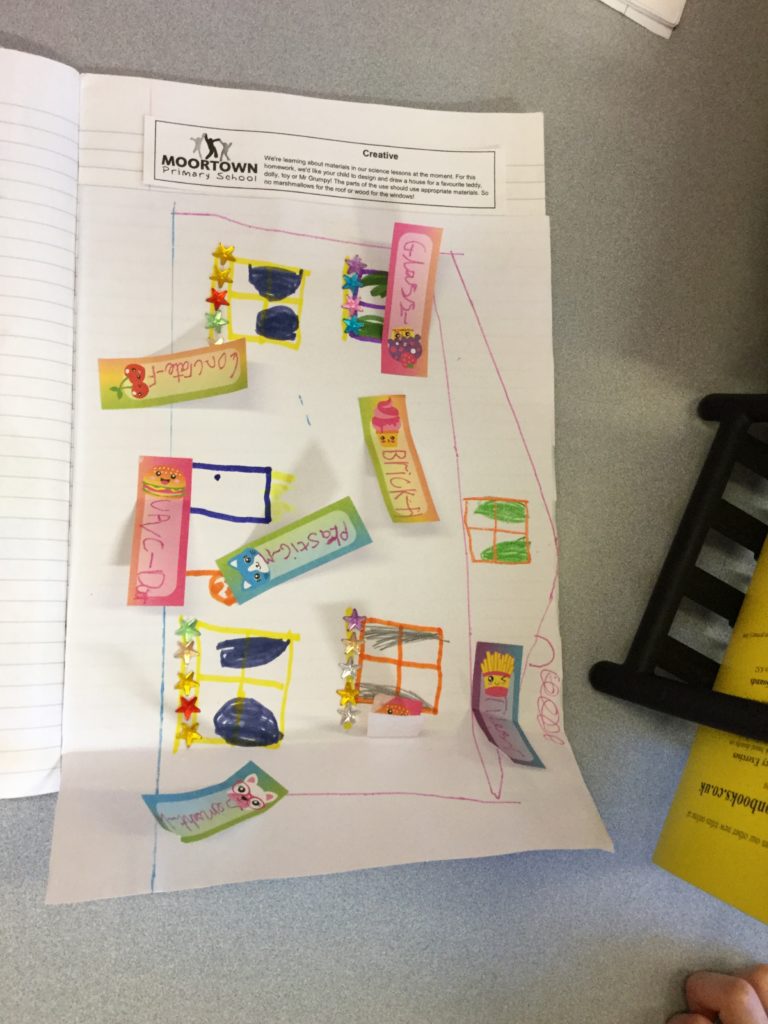
Materials and their properties
As part of our What’s the matter? mini science topic, we been identifying and also describing the properties of materials. There’s been lots of new words to learn. Ask your child if they can name something that might be rigid, opaque, transparency or stretchy.
In this learning, we combined science with maths to sort objects according to their properties using a venn diagram.
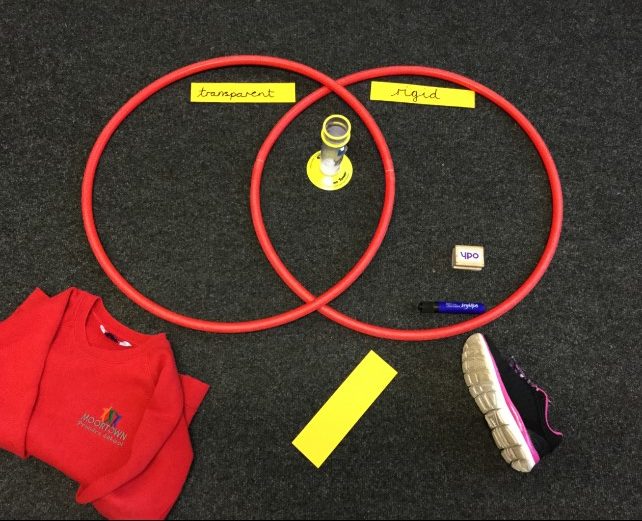
Ask your child what might go in the centre of the venn diagram and what might go outside the venn diagram.
Brown Bear, Brown Bear, “What do you see?”
We have enjoyed retelling this story and using story maps to record a different version of the story.
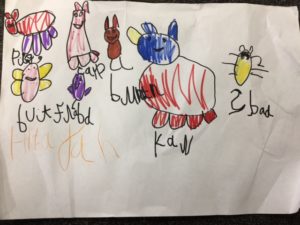
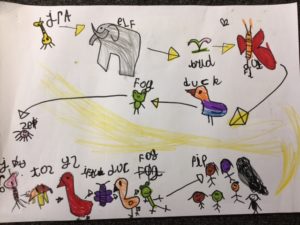
Ask your child to tell you their story.